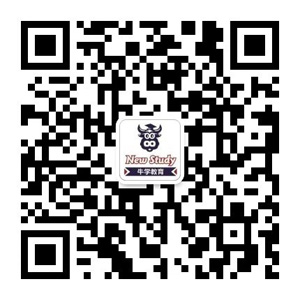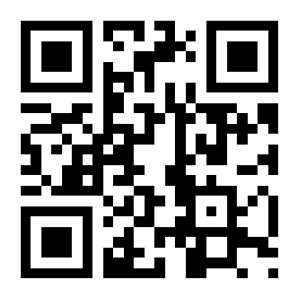今日份雅思精读内容来自《经济学人》,文章内容有关:美国的贸易政策计划。原标题是:American trade policy Plan of action The Trump administration’s trade strategy is dangerously outdated(标题翻译:美国的贸易政策计划,特朗普政府的贸易策略严重过时),本篇雅思阅读文章建议精读时间:25分钟,阅读难度中等。
经济学人每日雅思精读:特朗普政府的贸易策略严重过时(American trade policy Plan of action The Trump administration’s trade strategy is dangerously outdated)
ON THE campaign trail, Donald Trump’s trade policy was an alarming mixture of coruscating complaints and fierce threats of protectionist retaliation. But the world has been in the dark about how much of this rhetoric his administration might turn into reality. A flicker of light came on March 1st as the administration’s trade-strategy document was presented to Congress. Washington wonks see the hand of Peter Navarro, Mr Trump’s trade adviser and author of a book (and film) called “Death by China”. Robert Lighthizer, the nominee for the United States Trade Representative (USTR), has not yet been confirmed.
在特朗普竞选期间,谈及贸易政策,唐纳德·特朗普要么是严厉地控诉,要么是气势汹汹地威胁要采取带有保护主义色彩的报复手段,令人担忧。不过世界并不清楚特朗普政府会在多大程度上将这些堂皇的高谈付诸实践。3月1日提交国会的贸易政策议程报告微露端倪。华盛顿的政策专家们从中嗅到了彼得·纳瓦罗(Peter Navarro)的影响。
Little is new in the document’s promises of “ new and better trade deals” or of strict enforcement of American trade laws. But a preference for bilateral trade deals over multilateral ones is a change of tack. And the tone is certainly confrontational: “It is time for a more aggressive approach.” The document also gives an indication of how a Trump administration might take a trade fight to China: by using sections 201 and 301 of the Trade Act of 1974.
The first weapon, section 201, allows tariffs to be imposed as a safeguard to protect American producers from a surge of imports. Affected companies must show that they have suffered “serious injury”, but need not prove any unfair practice by the foreign firms.
Mr Trump’s trade team may be reliving the experience of the Reagan administration, which in 1983 slapped an extra 45% tariff on imports of motorcycles in response to a petition from Harley-Davidson, an American manufacturer. Mr Trump has referred to this as having had a “big impact”. But as a trade-enforcement tool, section 201 has drawbacks. Proving a case can be tricky, since there is a high legal threshold for proving injury and the adjudicator, the International Trade Commission, is an agency respected for its independence. (The Department of Commerce, which makes rulings on anti-dumping, is seen as a softer touch.) Moreover, indiscriminate use of the provision will provoke other countries into retaliation. In 2002 America tried to slap tariffs of 30% on steel in violation of the World Trade Organisation’s (WTO) rules, but was forced to retract when faced with the threat of $2.2bn-worth of tit-for-tat tariffs on exports ranging from sunglasses to orange juice.
The second weapon in the arsenal, section 301, is “scarier” than 201, says Kim Elliott, a trade expert. “The grounds for taking action are less well-defined.” It allows the administration to take action against “unfair” trade practices. America used to invoke this section to hit its trade opponents before disputes could be dealt with by the General Agreement on Tariffs and Trade, the WTO’s precursor.
特朗普军火库中第二件武器是301条款。贸易领域的专家金·艾略特(Kim Elliott)称此条款要比201条款“可怕些”。相比之下,它“采取行动的依据界定得不是那么清楚”。301条款使美国政府可以针对“不公平”的贸易行为采取行动。美国曾援引这一条款来打击自己的贸易对手,而后留待WTO的前身《关贸总协定》来解决争端。
Since the establishment of the WTO in 1995, the section has fallen into disuse, on the understanding that it could be implemented if a WTO ruling went in America’s favour and authorised tariffs on a trading partner that was breaking the rules. The fear, however, is that last week’s mention of section 301 implies the Trump administration might start going outside the global rules of the WTO system. Intensifying the alarm is that an entire section of the strategy document focuses on defending American “national sovereignty over trade policy”. It also emphasises that a WTO ruling against America need not automatically lead to a change in American law or practice.
自1995年WTO成立以来,美国已弃用该条款。美国认同如果WTO的裁决对美国有利并批准美国向违反规则的贸易伙伴征收关税,实际上等同于贯彻301条款。不过令人担忧的是,上周这份报告对301条款的提及暗示特朗普政府也许会逐步脱离WTO体系下的全球性规则行事。
The document complains about the weakness of WTO rules. The implicit target is China. In one of the most important of several disputes which are currently working their way through the WTO courts, China challenges America’s refusal to treat it as a “market economy”. If the WTO granted China “market-economy status”, it could limit the level of WTO-compliant tariffs America could impose on its exports.
The echoes of the Reagan glory days seem to ignore how much the world has changed since the 1980s. Then the main object of America’s trading ire was Japan, an ally, which was both far smaller and often loth to retaliate when hit with trade measures. China is bigger and happier to fight back. For all its flaws, the WTO may be the best defence against an all-out trade war. In the words of Carla Hills, a USTR in the early 1990s: “without the WTO it would be the law of the jungle.”
特朗普贸易团队想重现里根时代的辉煌,但似乎忘记了今日世界已和上世纪80年代大不相同。那时在贸易中激怒美国的主要是日本。美国的这个盟友经济体量小得多,在遭受贸易措施打击时也不愿积极反击。
更多雅思阅读精读文章,请关注牛学雅思频道。















